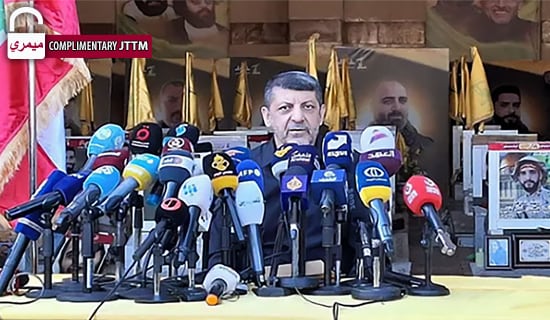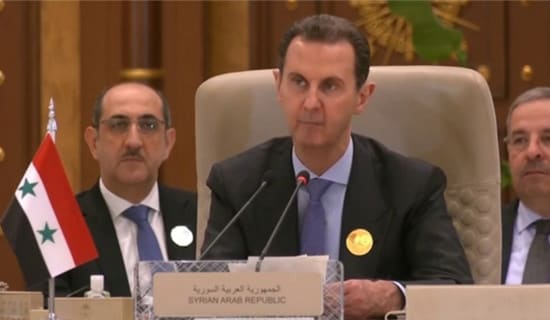U.S. social media companies have made some progress over the past year in policing their space and more quickly removing content from the Islamic State (ISIS) or Al-Qaeda. Facebook has been the most forward leaning in eliminating overt terrorist propaganda and protecting the unwary from radicalizing material. Twitter remains a site where extremists are still easy to find, and they actually boast of their continuing presence on it.[1] But social media still have a lot of material which, while not being the latest, most high-profile, or branded content issuing from ISIS, sends precisely the same message. This content ranges from religious sermons promoting the Salafi jihadi world view to music.
The abiding presence of this material on platforms owned by American social media companies underscores the challenge of algorithms and supposed experts. It is unclear what qualifications and criteria vetting committees actually use and how they are prepared to perform the task- given the clearly labeled origin and thrust of words and images promoting organizations that are at this very moment carrying out mass murder, rape, and destruction on an industrial scale - both perpetrating heinous, criminal acts and boasting about it.
The European Union recently announced a special referral unit at Europol to fast-track the removal of online content that glorifies acts of terrorism, but this is a daunting task.[2]
Just like finding playlists on YouTube of certain genres of music or a certain artist, group or composer, any user can also listen to hours of jihadi music videos replete with images of fighting, glorification of terrorist leaders and organizations, and outright support of FTOs such as ISIS or Hamas. These playlists are homemade productions, likely put together by youthful enthusiasts, and relying on individuals posting videos who use names like "1 Khilafah Production," "Son of Bosnia," and "WegZumParadiesNr3."
One playlist titled "Popular Salafi Jihadism and Nasheed videos" has 152 items and was created by someone promoting, not surprisingly, the hashtag of #SalafiJihadism.[3]

This playlist does not include the most famous polished songs of the Islamic State, but rather tends towards more amateurish, diverse materials that vary also in terms of technical and musical quality and source. Some of the videos have only a few hundred views, while others have hundreds of thousands. Some are recent additions while others have been on YouTube for five years or longer.
Unlike ISIS, which jealously promotes itself and considers most other groups beyond the pale, this playlist includes content glorifying ISIS, Al-Qaeda, Hamas, various Islamist Syrian rebel factions, and other, more local jihadi groups worldwide.
Many of the videos are promoted with labels such as "the splendid Jihadis Nasheed (song)" or "most beautiful encouraging jihadis video." This one below actually praises ISIS and even includes a version of its notorious motto "baqiyya" (here to stay) often used on Twitter by pro-ISIS tweeps. This seems to be part of an effort to use YouTube videos to drive viewers to the proper hashtags on Twitter.

Most of the music videos are in Arabic, but some have English subtitles. This one below is titled "the most beautiful nasheed, let's go and fight."

There are currently several playlists in the Salafi-jihadi genre. A shorter one, called more plainly "Salafi Nasheed" and created by Amir Faria, has several deleted items in the playlist, probably because they included some of the more famous ISIS songs with the images intact promoting the Islamic State.[4] This is a recurring issue on YouTube: certain ISIS videos are removed but others, supposedly less objectionable ones but still promoting an organization that beheads, slaughters, crucifies, and encourages others to do the same, remain in place. Many of the remaining songs are indeed just Salafi songs promoting the Salafi Islamist religious worldview without an overt connection to existing terrorist groups.

Still another playlist, evincing a more juvenile vibe and just titled "Popular Videos - Jihad & Nasheed," has 200 songs and is even wider in its scope, beginning the playlist with a jaunty tune from Palestinian Islamic Jihad (PIJ) before continuing with hymns glorifying the fight in Chechnya and Syria.[5] Images of Osama bin Laden, Abu Mus'ab Al-Zarqawi, ISIS commander Abu Omar Al-Shishani, and others are frequent. Horses, swords, guns, and lions abound. As often happens with mashups, a song is matched with images taken from other media including popular movies (the 2005 Ridley Scott production Kingdom of Heaven being a particular favorite). One jihadi song incongruously uses the American bald eagle as an image to promote its cause.

Some of the songs on this playlist are subtitled in the originals in languages like Bahasa Indonesian, German or English. The list is, if anything, eclectic, even including one music video from the Lebanese terrorist group Hizbullah, the archenemy of Salafi jihadi groups like ISIS (and, of course, Hizbullah is not a Salafi group at all). In addition to a couple with Shia content, this particular playlist includes material supposedly "for comedic purposes," combining clips of Hollywood movie explosions with real ISIS music (such as the iconic Saleel al-Sawarim) and the sounds of battle and "Allahu Akbar" taken from actual ISIS material.

Unlike Twitter or Archive.org,[6] YouTube does at least have a relatively clear reporting mechanism for identifying and, hopefully, removing terrorist material. This system still requires motivated private individuals to do the reporting, and the actual guidelines are hermetic to the general public. There may well be gray areas where free speech concerns should come into play. But given the sheer quantity of overt material blatantly supporting the ideology of designated FTOs, we have not yet even begun to reach that sensitive zone.
*Alberto M. Fernandez is Vice President of MEMRI.
[1] Washingtonexaminer.com/twitter-pressed-to-confront-terrorist-abuse/article/2559893.
[2] Europol.europa.eu/content/europol%E2%80%99s-internet-referral-unit-combat-terrorist-and-violent-extremist-propaganda.
[3] Youtube.com/playlist?list=PLKLP7PDUxI8x0EKmNM4Hwdwwf5sMAjpyL.
[4] Youtube.com/watch?v=2TCdmy-7-Xw&list=PLzAizDWpdDn8WjyLr23h9lQ8fT3vR45lT.
[5] Youtube.com/playlist?list=PLrwdN9vtPRJ2QiQavnittoYh-UGph1bnS.
[6] See MEMRI Cyber and Jihad Lab report Who Is Posting Islamic State (ISIS) Materials On The San Francisco-Based Internet Archive (Archive.org) - And What Can Be Done About It?, June 1, 2015.








